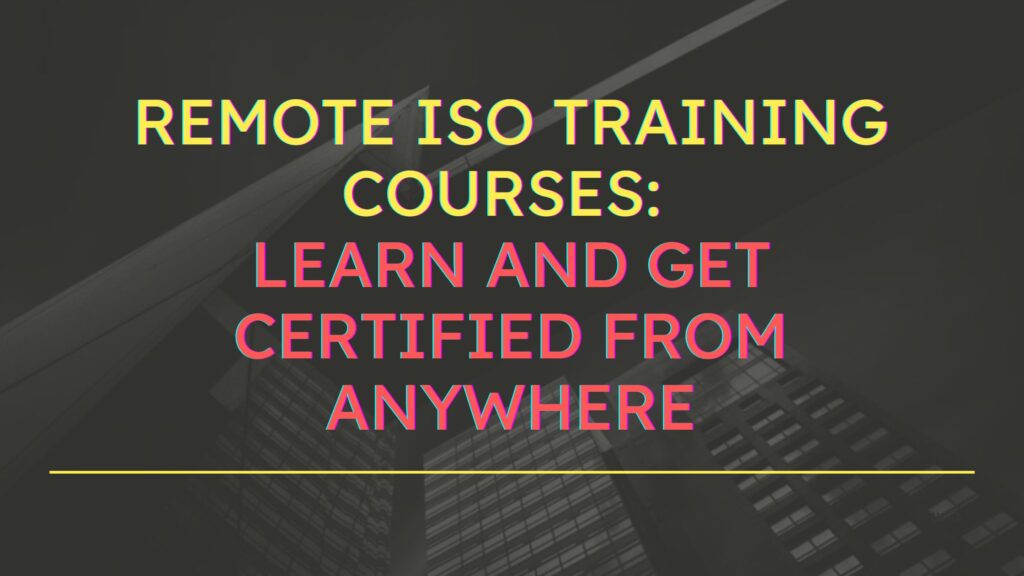ISO training is necessary for companies and professionals who want to enhance their understanding of international standards. Remote ISO training courses provide an easy means of acquiring knowledge of ISO standards without attending physical sessions. The courses are convenient, accessible, and affordable while providing quality training.
What is Remote ISO Training?
Remote ISO training is an online learning method through which individuals can learn ISO standards, requirements for compliance, and auditing processes remotely from any location. These courses deal with all the major ISO certifications, such as ISO 9001 for quality management, ISO 45001 for occupational health and safety, and ISO 27001 for information security.
Trainees get access to video lectures, interactive modules, and online materials. Some programs provide live sessions with industry practitioners, while others facilitate self-learning.
Who Should Join Remote ISO Training?
ISO training is advantageous to professionals in any industry. Business owners, quality managers, auditors, compliance officers, and team leaders can enhance their competence with online courses. Organizations aiming for ISO certification can prepare their staff according to global standards.
Advantages of Online ISO Training
1. Learn Anytime, Anywhere
Virtual training obviates the necessity to travel. Trainees can get course content at home, the office, or anywhere with access to the web. This enhances the ability of professionals to blend work and studying.
2. Affordable Learning
Training online saves on the cost of travelling, staying, and materials. Most training sites have competitively priced alternatives, making certification by ISO feasible.
3. Interactivity and Interesting Content
The majority of remote ISO training programs involve multimedia material and quizzes, along with case studies and real-life scenarios. A few vendors provide virtual labs and hands-on exercises for greater comprehension.
4. Guidance and Support by Experts
Several courses incorporate live sessions, discussion forums, and individual mentorship. Instructors give feedback and respond to queries to make the learning process smooth.
5. Career Advancement through Certification
Completing a course in ISO training and being certified improves professional opportunities. Certified individuals become professionals in their work and are more distinguishable in job applications.
Popular ISO Standards Available for Remote Training
ISO 9001: Quality Management Systems
Aims to enhance business processes, customer satisfaction, and efficiency.
ISO 45001: Occupational Health and Safety
Assists companies in minimizing workplace hazards and employee safety.
ISO 14001: Environmental Management Systems
Encompasses business strategies for sustainable business and environmental stewardship.
ISO 27001: Information Security Management
Sets standards for securing sensitive data and cybersecurity.
Selecting the Proper Remote ISO Training Provider
Most platforms provide ISO training. In choosing a provider, look at course material, instructor qualifications, certification acceptance, and student feedback. One of the most reliable ISO training providers is Core System Consultant. They have an experienced team of employees that prioritize your business success sincerely.
Getting Started
- Determine the ISO standard applicable to your situation.
- Select a qualified training provider.
- Take a self-paced or instructor-led course.
- Finish the modules, tests, and exams.
- Get certified and implement ISO concepts in your profession.
Conclusion
Online ISO training courses offer a convenient and affordable means of acquiring knowledge in global standards. Online learning allows anyone to get certified in ISO for personal development or business enhancement. Check out the courses available, begin learning today, and move closer to improved compliance and efficiency.

